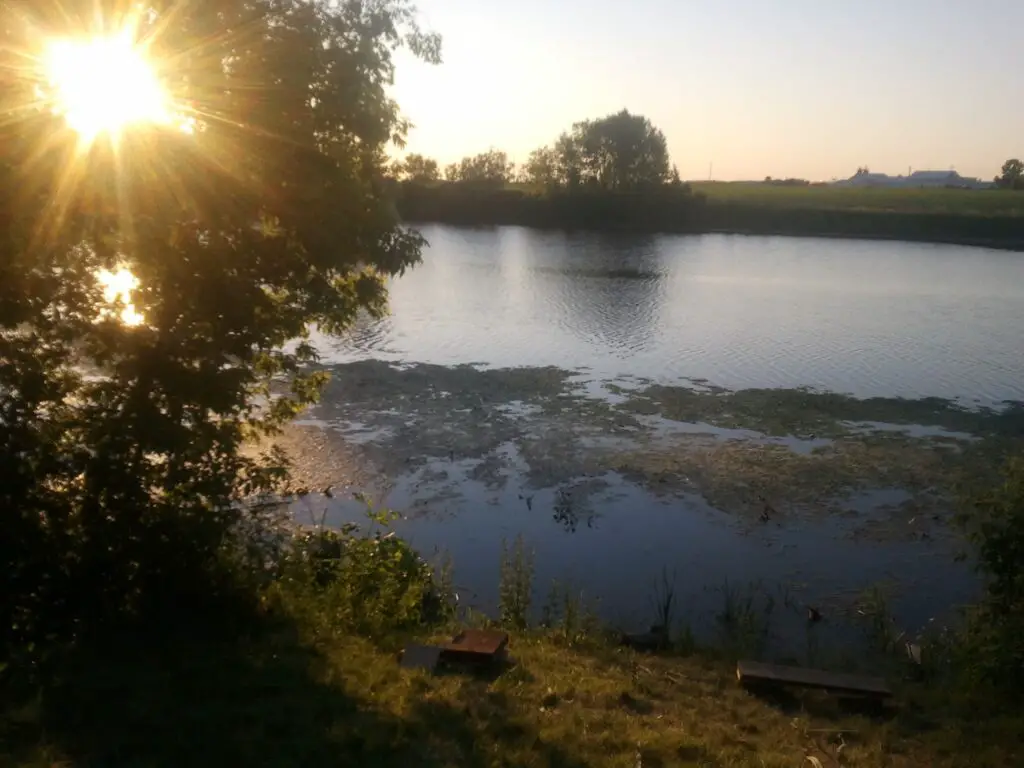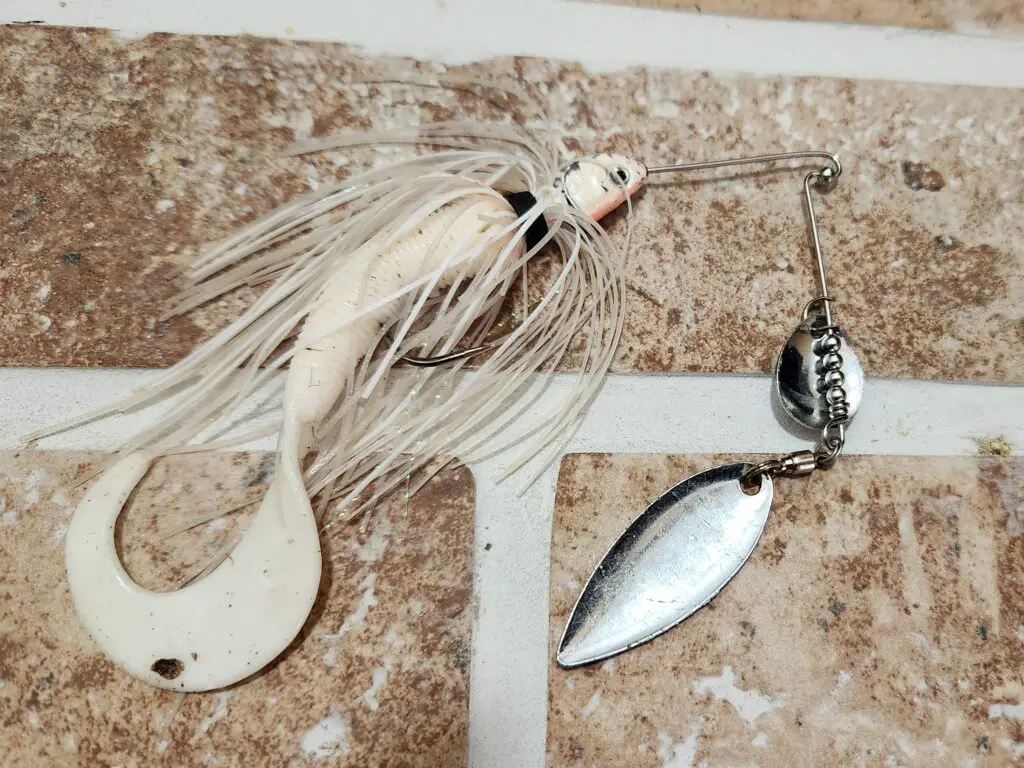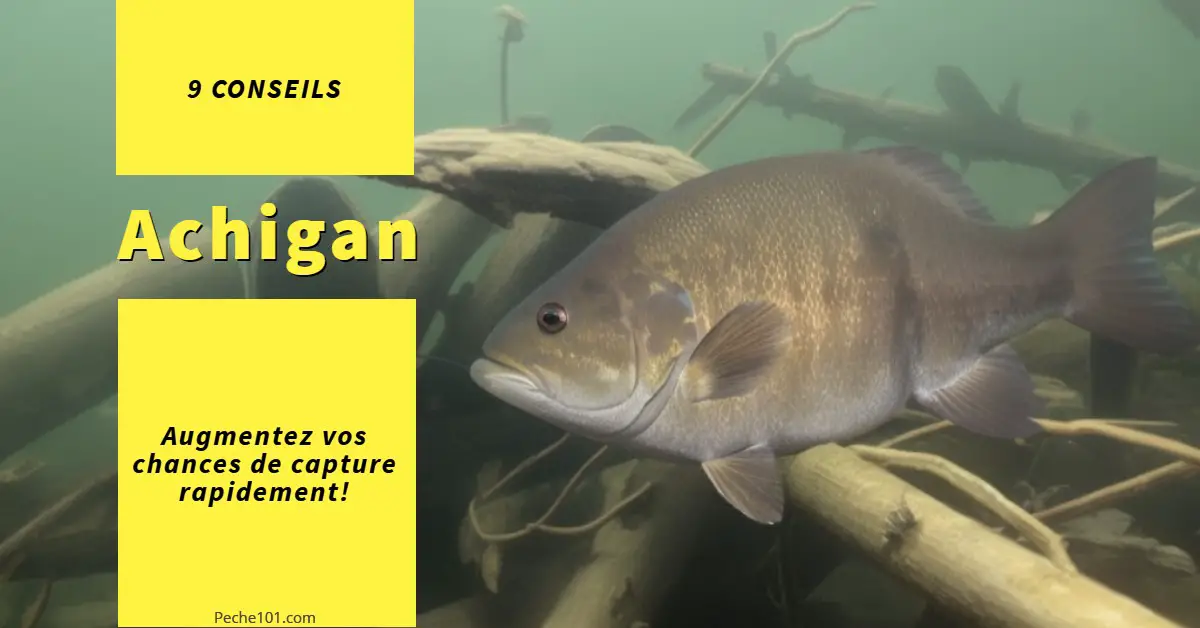Bass fishing is an exciting sport that requires patience, knowledge and technical skill.
Whether you're a beginner or an experienced angler, here are nine essential tips to help you become a better bass angler.
Article content
1. Find the cover to find the bass
The key to successful bass fishing is to place your lure where the fish are.
To do this, you need to identify and target coverage areas on the water surface.
The cover can take various forms, such as rocksthe docks, grassthe water liliesetc.

These areas attract bass prey and provide shelter.
Explore coverage areas carefully and concentrate your efforts where fish are most likely to be found.
2. Match lure to bass diet
Bass, whether small mouth are opportunistic predators that feed on a variety of prey.
It's essential to choose a lure that mimics the type of prey bass consume in the waters where you're fishing.
If bass feed on baitfishUse lures that look like fish.
If the crayfish are their main source of food, opt for lures that mimic these crustaceans.
Understand the bass diet in your area and adapt your lures accordingly to increase your chances of success.
3. Be versatile in your approach
To become an accomplished bass angler, it's important to be versatile.
Don't settle for just one technique or one type of lure.
Explore different fishing methods, try out new lures and adapt to changing conditions.
Fish in different types of water and learn to adapt to the particularities of each environment.
Versatility will enable you to respond to bass preferences and optimize your catch chances.
4. Understand the impact of weather on bass
The weather has a significant impact on bass behavior.
Learn to observe and understand how weather conditions influence fish activity.
For example, cloudy days can be conducive to the use of mobile lures such as visit spinnerbaits and visit chatterbaits to stimulate bass activity.

By sunny weatherBass tend to stand close to the blanket to protect themselves. Use lslower eurons that mimic slow-moving prey.
Understanding how the weather affects bass will help you choose the best lures and techniques for the day's conditions.
5. Monitor water temperature
Water temperature has a significant impact on bass behavior.
They are cold-blooded fish, which means that their level of activity is directly linked to water temperature.
In general, bass are more active in warmer waters and less active in colder waters.
Monitor the water temperature in the areas where you fish and adapt your technique accordingly.
Use more aggressive lures in warmer waters and slower lures in colder waters.
6. The wind can be your ally

When bass fishing, don't underestimate the wind.
Although it can make fishing difficult, wind can also be beneficial. Wind creates movement on the surface of the water, helping to conceal your presence and make your lures more natural.
What's more, the wind stirs up the water, oxygenating the environment and stimulating fish activity.
Take advantage of windy days using faster lures like spinnerbaits and crankbaits to attract the attention of bass (black perch, Blackbass).
7. Master fishing knots
The quality of your fishing knots is crucial to avoid losing fish.
Take the time to learn and master different fishing knots adapted to your techniques and your line.
Commonly used knots include the Palomar knot (video below..), the plain knot, the surgeon's knot, and others. Practice these knots regularly so that they become natural and strong on your fishing trips.
8. Do your homework
Research and preparation are essential to maximize your chances of success on your bass fishing trips.
Find out about the body of water you're going to fish using online tools such as Google Earth and fishing reports.
Identify hot spots, underwater structures and areas of cover where bass are likely to be found.
Plan your approach according to this information to save time and increase your chances of catching fish.
9. Be persistent
Perseverance is the key to success in bass fishing.
Don't be discouraged if the fish don't bite immediately.
Explore different areas, try out different techniques and remain confident in your abilities. Sometimes patience and perseverance are rewarded with a memorable catch.
Keep fishing with determination and learn from every experience to become an accomplished bass angler.
By following these tips, you'll improve your bass fishing skills and increase your chances of catching fine specimens.
Enjoy your time at the water's edge and remember to respect the environment and practice responsible fishing.
Happy bass fishing!

